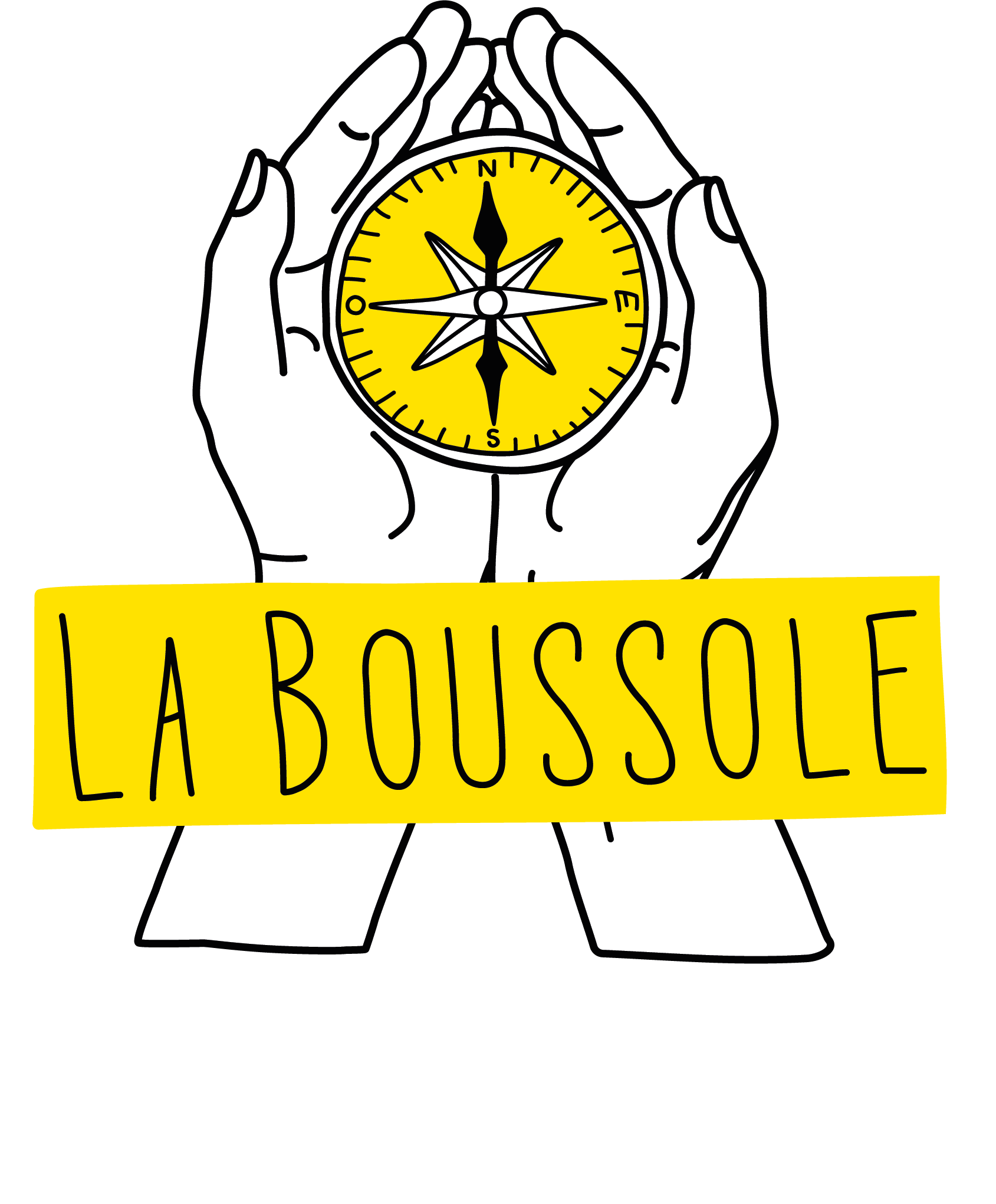A look back at the September 17 workshop
On September 17, La Boussole organized a workshop on Aboriginal cultures, in advance of Truth and Reconciliation Day. The workshop was part of La Boussole's ongoing commitment to recognize the unceded lands on which it operates, and to raise awareness in the French-speaking community of the history and heritage of aboriginal peoples. Truth and Reconciliation Day is an opportunity to remember the traumas caused by the residential school system, and to promote a better understanding of Aboriginal realities. For La Boussole, it was important to propose an activity specifically aimed at the French-speaking community, on a subject still surrounded by much prejudice and ignorance.
The workshop was led by Anjeanette Dawson, an Aboriginal facilitator from the Squamish Nation, renowned for her expertise in residential schools in particular. Her presentation in English, translated by the La Boussole team, enabled the 15 or so people in attendance (La Boussole beneficiaries and members of the French-speaking community) to discover the history of Aboriginal peoples and gain an insight into their cultural practices.
The mobilization of people around this theme and the keen interest generated by the workshop prompted us to return to the participants to gather their impressions and emerging ideas. The quotes in this text come from this exchange with 5 La Boussole beneficiaries, new arrivals from French-speaking immigrant countries.
Pre-contact: the pre-colonial period
The first part of the workshop immersed participants in the region's pre-colonial history. During this so-called "pre-contact" era, between 15,000 and 20,000 people from the Squamish nation lived on the land around Vancouver. Anjeanette shared period photos collected from the native community, as well as from her personal collection, to show what the land looked like before the arrival of Europeans. Participants learned about the matriarchal organization of aboriginal societies and other elements of the Squamish Nation's social organization. Although the focus of the workshop was on the Squamish Nation, Anjeanette also mentioned the Musqueam and Tsleil-Waututh nations, who share these territories with the Squamish, and the relationships between these aboriginal peoples, sometimes marked by conflict.
© Anjeanette Dawson | https://www.indigeknow.net/
The aftermath of colonization
The second part of the workshop addressed the impact of colonization, particularly through the residential school system. Anjeanette presented key facts and figures, while sharing photos and personal testimonies.
The event gave participants an insight into the magnitude of the tragedy that befell aboriginal peoples, and the traumas whose impact is still keenly felt.
"The natives have suffered a great deal. They had their children taken away by force. When I heard that, it really touched me. I didn't know that story before." (B.)
This theoretical section was punctuated by a few questions. Several participants wondered about the links between the history of indigenous peoples and their own heritage, particularly on the subject of assimilation.
"The history of Vancouver in relation to my country [DRC], it's a bit similar. Because the settlers did the same things here as they did in my country." (Z.)
"The impact of colonization is that we've been taught that our culture is a bad one. [...] My parents left the village a long time ago. I was born in a city where when you go to school, you forget your culture. When I was 14 or 15, I went to my father's native village. And there I discovered the culture, I discovered how people live, how people function. It's different from what I learned at school. What I learned was that our culture is a bad culture, we had to get rid of it." (A.)
These comments from A. resonate with what Anjeanette shared about residential schools, whose aim was to "take the Indianout of the child" by separating them from their parents, their culture and their language.
Discover traditional weaving
The last part of the workshop was devoted to a hands-on activity, an introduction to traditional weaving. Anjeanette brought along blankets made using the techniques she had learned. Participants were thus able to discover this know-how and try their hand at this traditional technique.
"This kind of training [helps to] preserve the culture. [Without it], in one or two generations, it's lost." (A.)
© Anjeanette Dawson | https://www.indigeknow.net/
The event concluded with a tasting of traditional native dishes provided by West Coast Bannock, which brought back memories for some participants and led to comparisons, with some observing similarities with dishes from their own culture.
Valuing indigenous cultures: a long-term commitment
Although this workshop was organized in the run-up to Truth and Reconciliation Day, La Boussole is committed to highlighting Aboriginal cultures throughout the year. In 2023, for example, La Boussole offered a Métis dance workshop. In addition, La Boussole develops partnerships wherever possible with Aboriginal organizations and businesses such as Salmon & Bannock, which provided last year's Christmas meal, and West Coast Bannock, which contributed to the September 17 event. La Boussole looks forward to continuing this mission in the years to come.
We invite you to get involved in this day of commemoration by getting informed and taking part in the events. To this end, here are a few educational resources on the Day of Truth and Reconciliation and several events taking place on September 30:
- National Centre for Truth and Reconciliation (website)
- TRW 2024 Lunch & Learns: How Do We Address The Barriers To Reconciliation (webinar)
- Finding Your Voice: National Day for Truth and Reconciliation Workshop (art workshop)
- Cultural Perspectives Training Series: Building Local Relationships (webinar)
- Britannia Friendship Walk and Gathering
- UBC Intergenerational March to Commemorate Orange Shirt Day (march)
- As You Like It Or the Land Acknowledgement Play

